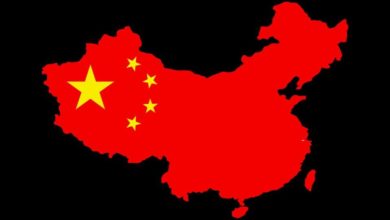شبكات التواصل الاجتماعي ودورها في تكوين الثقافة السياسية لدى الشباب الجزائري “فيسبوك،””تويتر” نموذجا دراسة تطبيقية على عينة من طلبة كلية علوم الإعلام والاتصال -جامعة الجزائر3-
Social networks and their role in shaping the political culture of Algerian youth Facebook, Twitter model Applied Study on a Sample of Students of the Faculty of Information and Communication Sciences - University of Algiers3

اعداد: أ.إغالون نورة – باحثة في علوم الإعلام والاتصال في المدرسة الوطنية العليا
للصحافة وعلوم الإعلام الجزائر
- المركز الديمقراطي العربي
- مجلة الدراسات الإعلامية : العدد الرابع – أغسطس – آب “2018” وهي مجلة دولية محكّمة تصدر من ألمانيا – برلين عن “المركز الديمقراطي العربي” تعنى بنشر الدراسات والبحوث في ميدان علوم الاعلام .
ملخص:
هدفت الدراسة إلى معرفة الدور الذي تلعبه شبكات التواصل الاجتماعي في تكوين ثقافة سياسية من خلال دراسة عينة من طلبة كلية علوم الإعلام والاتصال “جامعة الجزائر 3” مستعملي هذه الشبكات.وقد استعان الباحثة بالمنهج الوصفي التحليلي وتم الاعتماد على تقنية الاستبيان كأداة لجمع البيانات والمعلومات الخاصة بالدراسة ،وتم اختيار العينة بالأسلوب العينة القصدية ، كما تكونت عينة الدراسة من 80 مفردة. وتوصلت الدراسة إلى مجموعة من النتائج التالية : ويستخدم أغلب أفراد العينة شبكات التواصل الاجتماعي بدافع الاهتمام بالمناقشات التي تدور حول القضايا السياسية إلى جانب اعتماد الطلبة على شبكات التواصل الاجتماعي في اقتناء المعلومة السياسية وقد بينت النتائج أن لشبكات التواصل الاجتماعي دور في تشكيل مواقفي السياسية،كما أسفرت الدراسة أن شبكات التواصل الاجتماعي تسمح للمستخدمين بالتعبير عن أرائهم بكل حرية.
Abstract:
The study aimed to know the role played by the social networks in the formation of a political culture through the study of a sample of the students of the Faculty of Information and Communication Sciences “University of Algeria 3” users of these networks. The researcher used the descriptive analytical method and relied on the questionnaire technique as a tool to collect data and information on the study , And the sample was selected in the sample sample method, and the study sample consisted of 80 individuals. The study found a number of the following results: Most of the respondents use the social networks because of the interest in the discussions on political issues, as well as the dependence of students on social networks in the acquisition of political information. The results showed that social networks play a role in shaping my political positions. Study that social networks allow users to express their views freely.




